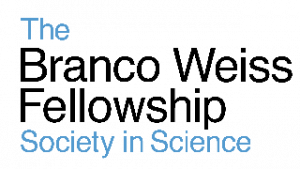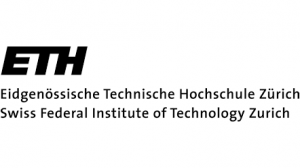Branco Weiss Fellowship in Science

The fellowship is designed for postdocs in all areas of natural and social sciences and engineering who are not only rising stars in their respective fields, but in addition have a vision for realizing their own dreams of reshaping the future of their fields of science, and above all are willing to engage in a dialogue with society on relevant social, cultural, political or economic issues across the frontiers of their particular discipline.
The fellowship was founded in 2002 by the late Swiss entrepreneur Dr. Branco Weiss. In 2010, he established the fellowship program at ETH Zurich, his alma mater. Candidates can apply for a project to be hosted by any academic institution worldwide, provided that it is exceedingly well suited for the task.
The original idea of The Branco Weiss Fellowship is exemplified by selected alumni portraits.
Who Should Apply
Candidates who excel beyond boundaries
The ideal applicant for a Branco Weiss Fellowship leverages the freedom offered by the fellowship to design a surprisingly novel and scientifically rigorous research project. The fellowship addresses junior researchers with a record of outstanding scientific achievement and a passion for venturing into new territory (see: Mission).
To give you an impression of what kind of qualifications a typical Branco Weiss Fellow should have, please check the current fellow profiles, as well as selected alumni portraits.
Before applying or contacting us, please read the information on this website carefully.
The registration portal for the 2026 fellowship intake is now open. It will close on January 15, 2026, 5 p.m. CET.
To avoid server-overload, please submit your application at least 1 to 2 days before the deadline.
Guidelines
The guidelines summarise the procedures and conditions of the Branco Weiss Fellowship.
They can be downloaded here.
Eligibility, Duration, and Funding
Courageous postdocs aiming to go further
You are eligible for the 2026 intake if:
- You officially hold a PhD on January 15, 2026. This means that you have at least successfully passed your PhD defense before January 15, 2026.
- You have obtained your PhD a maximum of five years prior to January 15, 2026
- You do not hold/have not held a faculty-equivalent position (e.g. assistant professor or lecturer)
- Your project departs from the mainstream of research in your discipline
- You have a record of outstanding scientific achievement
- You demonstrate in the proposal a willingness to engage in a dialog on relevant social, cultural, political or economic issues beyond the frontiers of your particular discipline
Please note that we typically do not fund mainstream research projects that could also be funded by other scientific organizations.
If you have applied before and were not selected, you are welcome to apply again.
Only the following reasons for delays after attaining your PhD are acceptable:
- parental leave
- inability to work due to illness or accident
Applicants must provide an official confirmation of their leave(s) before they submit an application. The number of weeks that the research work was interrupted is accepted as an extension (max. 1 year in total).
Duration
Research projects should be conceived to last five years.
The first two and a half years of a project are called the pioneer phase. Before the end of the second year, a site visit will take place and a review will be conducted. At this point, the project, its continued originality, and the productivity of the fellow will be evaluated. If the results of the evaluation and site visit are satisfactory, the fellow enters the exploitation phase for the remaining two and a half years of the fellowship.
Branco Weiss Fellows are encouraged to seek faculty positions during their exploitation phase. Fellows can start a faculty position/professorship after the first year of the fellowship. Assuming an academic position will not result in termination of the fellowship.
Funding
A Branco Weiss Fellowship amounts to max. CHF 600,000 for up to five years. It may be used to cover all legitimate costs of research (i.e. salary and/or equipment, travel expenses, consumables, personnel, etc.).
Application
Applications for the 2026 fellowship are now open. Apply here.
Before applying, please read the Frequently Asked Questions and Guidelines on this website carefully.
The application portal will close on January 15, 2026, 5 p.m. CET. To avoid server-overload, submit your application at least 1 to 2 days before the deadline.
Please have the following documents (pdf files) ready for uploading:
- Letter of motivation including a statement explaining why your research differs from the mainstream (max. 1 page)
- Your proposed research project (max. 5 pages, including abstract, timelines, tentative milestones and references)
- Your CV (max. 4 pages)
- An invitation letter by your prospective host, stating why you are invited to the host group and why your research project is supported
- Copies of your three best publications (no doctoral theses, no books, only peer-reviewed journal articles or individual book chapters)
- 5 reviewer suggestions (to be entered directly in the online application)
Please note that a letter of support does not have to be submitted upon application. Budgets do not have to be submitted.
The steps required to submit an application in the web-based ETH Zurich grant application system ‘eResearch’ are outlined here.
In preparing the description of your intended research, you may wish to give emphasis to the idea or concept forming the heart of the work, the methods you are planning to use, and the potential impact of the outcome both for your own subject and for other disciplines. In your proposal, you should also seek to present links between society and science that you wish to explore and promote.
All documents must be submitted as PDF files (max. 5 MB per file and 15 MB in total; if necessary, shrink the file size using one of the various software tools available). Please use the following naming conventions for your documents and do not forget to add your family name:
- FamilyName_ResearchProposal
- FamilyName_CV
- FamilyName_MotivationLetter
- FamilyName_HostLetter
- FamilyName_Publication1
- FamilyName_Publication2
- FamilyName_Publication3
Timelines
The proposals are evaluated by the directorate, selected faculty members of ETH Zurich, and external reviewers. Short-listed candidates are invited for personal interviews, to be held in Zurich, Switzerland.
The following timeline applies for the 2026 fellowship intake:
- January 15, 2026, 5 p.m. CET: final deadline for applications via the online form
- May 2026: notification and invitation for a personal interview sent to final selection of candidates; notification sent to candidates whose application has been rejected
- June 2026: candidates interviewed by a panel in Zurich, Switzerland; final selection of fellows
- October 1 to December 31, 2026: fellows commence research projects

